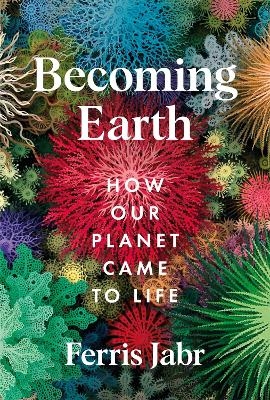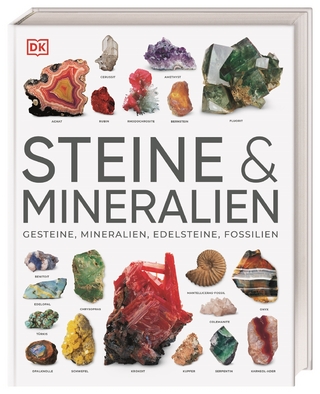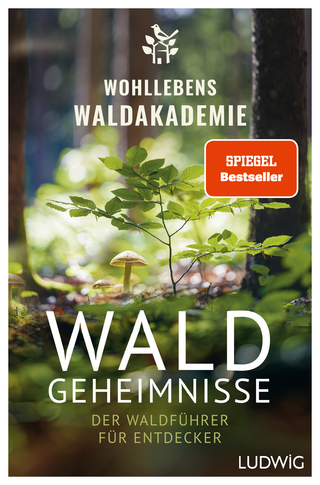
Becoming Earth
How Our Planet Came to Life
Seiten
2024
Picador (Verlag)
978-1-5290-3817-0 (ISBN)
Picador (Verlag)
978-1-5290-3817-0 (ISBN)
A revolutionary account of Earth as a living organism – a finely-tuned planetary network made up of all living and non-living things – and one that provides an unusual degree of hope for its future.
A radically thought-provoking account of a major shift in how we understand our Earth, not simply as an inanimate planet on which life evolved, but rather as a planet that came to life, from the heart of the Amazon rainforest to the soil in our gardens.
'A glorious paean to our living world, full of achingly beautiful passages, mind-bending conceptual twists, and wonderful characters. Ferris Jabr reveals how Earth not only gave rise to life, and now teems with it, but has also been profoundly, miraculously shaped by it.' – Ed Yong, author of An Immense World, winner of the Royal Society Science Book Prize
'I did not expect to experience joy when I opened Becoming Earth, but I did, and I do. The ambition, eloquence, and erudition in this dragonfly droneflight of a book are absolutely exhilarating.' – John Vaillant, author of Fire Weather, winner of the Baillie Gifford Prize
The notion of a living world is one of humanity’s oldest beliefs. Though once scorned by many scientists, the concept of Earth as a vast interconnected living system has gained acceptance in recent decades. Life not only adapts to its surroundings – it also shapes them in dramatic and enduring ways. Over billions of years, life transformed a lump of orbiting rock into our cosmic oasis, breathing oxygen into the atmosphere, concocting the modern oceans, and turning rock into fertile soil. Life is intertwined with Earth’s capacity to regulate its climate and maintain balance.
Through compelling narrative, evocative descriptions, and lucid explanations, Ferris Jabr shows us how Earth became the world we’ve known, how it is rapidly becoming a very different world, and how we will determine what kind of Earth our descendants inherit for millennia to come.
'Fascinating, thought-provoking, and, ultimately, inspiring' – Elizabeth Kolbert, author of The Sixth Extinction, winner of the Pulitzer Prize for General Nonfiction
A radically thought-provoking account of a major shift in how we understand our Earth, not simply as an inanimate planet on which life evolved, but rather as a planet that came to life, from the heart of the Amazon rainforest to the soil in our gardens.
'A glorious paean to our living world, full of achingly beautiful passages, mind-bending conceptual twists, and wonderful characters. Ferris Jabr reveals how Earth not only gave rise to life, and now teems with it, but has also been profoundly, miraculously shaped by it.' – Ed Yong, author of An Immense World, winner of the Royal Society Science Book Prize
'I did not expect to experience joy when I opened Becoming Earth, but I did, and I do. The ambition, eloquence, and erudition in this dragonfly droneflight of a book are absolutely exhilarating.' – John Vaillant, author of Fire Weather, winner of the Baillie Gifford Prize
The notion of a living world is one of humanity’s oldest beliefs. Though once scorned by many scientists, the concept of Earth as a vast interconnected living system has gained acceptance in recent decades. Life not only adapts to its surroundings – it also shapes them in dramatic and enduring ways. Over billions of years, life transformed a lump of orbiting rock into our cosmic oasis, breathing oxygen into the atmosphere, concocting the modern oceans, and turning rock into fertile soil. Life is intertwined with Earth’s capacity to regulate its climate and maintain balance.
Through compelling narrative, evocative descriptions, and lucid explanations, Ferris Jabr shows us how Earth became the world we’ve known, how it is rapidly becoming a very different world, and how we will determine what kind of Earth our descendants inherit for millennia to come.
'Fascinating, thought-provoking, and, ultimately, inspiring' – Elizabeth Kolbert, author of The Sixth Extinction, winner of the Pulitzer Prize for General Nonfiction
Ferris Jabr is a contributing writer for The New York Times magazine and Scientific American. He has also written for The New Yorker, The Atlantic, Harper’s, Foreign Policy, National Geographic, Wired, Outside, McSweeney’s, and the Los Angeles Review of Books, among other publications. He lives in Portland, Oregon with his husband, Ryan, their dog, Jack, and more plants than they can count. Becoming Earth is his first book.
| Erscheinungsdatum | 23.08.2024 |
|---|---|
| Verlagsort | London |
| Sprache | englisch |
| Maße | 152 x 234 mm |
| Gewicht | 380 g |
| Themenwelt | Sachbuch/Ratgeber ► Natur / Technik ► Natur / Ökologie |
| Naturwissenschaften ► Biologie ► Ökologie / Naturschutz | |
| Naturwissenschaften ► Physik / Astronomie ► Angewandte Physik | |
| ISBN-10 | 1-5290-3817-0 / 1529038170 |
| ISBN-13 | 978-1-5290-3817-0 / 9781529038170 |
| Zustand | Neuware |
| Haben Sie eine Frage zum Produkt? |
Mehr entdecken
aus dem Bereich
aus dem Bereich
über 500 faszinierende Gesteine, Minerale, Edelsteine und Fossilien
Buch | Hardcover (2023)
DK Verlag Dorling Kindersley
CHF 39,90
Familien und Gattungen einheimischer Pflanzen
Buch | Hardcover (2022)
Haupt Verlag
CHF 67,95


